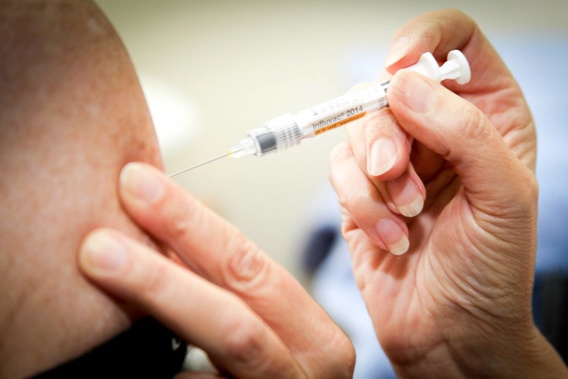

- A woman with a rare genetic disorder died four days after receiving the Covid-19 vaccine.
- Deputy Health and Disability Commissioner Vanessa Caldwell found the GP failed to provide appropriate care.
- The coroner determined the cause of death was thromboembolism.
A woman with a rare genetic disorder found unresponsive in her bed by her mother died four days after she was vaccinated against Covid-19.
Now, Deputy Health and Disability Commissioner Vanessa Caldwell has found she did not receive an appropriate standard of care from a doctor at the urgent care clinic she attended after becoming unwell soon after she was vaccinated.
But there is nothing in a decision, which was released today, to say if the death was preventable.

Deputy Health and Disability Commissioner Dr Vanessa Caldwell has found that a doctor failed to provide appropriate care to a woman who died days after being vaccinated against Covid-19. Photo / James Gilberd Photography
Caldwell acknowledged the whānau’s concerns that the vaccine may have led to the woman’s death, but it was not the HDC’s role to determine how she died but to assess the standard of care provided to the woman at the time of the events.
She has found the GP who saw the woman breached the patient’s consumer rights by failing to take additional and appropriate follow-up actions after an ECG returned an abnormal result.
In particular, he failed to discuss the results with a relevant specialist or compare it with one of the woman’s previous ECGs.
The woman had a rare genetic disorder that could be complicated by cardiovascular disease, the HDC said.
A coroner found that the woman died of natural causes, with the direct cause being thromboembolism, after her first dose of the Pfizer Comirnaty Covid-19 vaccine.
Caldwell said her report highlighted the importance of timely and appropriate follow-up actions when presented with abnormal test results.
Reaction ‘immediate and obvious’
The woman went to a medical centre with her mother in 2021, where both received the same vaccine, but afterwards her condition deteriorated, and there was concern she had suffered an adverse reaction.
The woman’s whānau described her reaction as “immediate and obvious” and said the family were still in shock at the “very noticeable change” they saw in her.

The woman died four days after she was vaccinated against Covid-19 but it's unclear whether her death was preventable. Photo / NZME
Her mother said that while they were in the recovery area, her daughter’s hands were “very cold” and her colour had changed.
Caldwell said clinical notes recorded the woman felt “heavy and weak” after the Covid vaccine with a blood pressure and pulse rate that were “unusual observations for this patient”.
The vaccination site co-ordinator advised the woman to go to the urgent care clinic at the public hospital for a medical review.
The medical centre said staff tried submitting an adverse event report to the Centre for Adverse Reactions Monitoring (CARM) via the relevant Ministry of Health online system, but technical issues meant it was not completed until four days later.
A nurse carried out new observations once the woman had arrived at the medical centre, and an ECG was performed, which gave a result: “Consider acute ischaemia. Abnormal ECG.”
The woman’s mother described her as being unable to move her left arm and still having very cold hands.
Nursing notes stated she denied having any chest pain or tightness.
The doctor who then saw her had been contracted by the clinic as a locum GP for five weeks.
His assessment after reviewing the woman was that she could be discharged home without further intervention.
Caldwell said his clinical notes recorded that he gave reassurance to the woman’s whānau and advised them to seek review from her regular GP or cardiologist if required.
Four days later, the woman’s mother found her unresponsive in bed and her death was confirmed by the attending ambulance crew.
Doctor’s focus obscured wider picture
The GP told the HDC that when he initially reviewed the ECG, he saw it was abnormal but did not appreciate at the time that it was “markedly” abnormal.
“When I reviewed [Ms A’s] medical history, I saw there was an explanation for the abnormal ECG – her previous surgery and cardiac issues, which would mean an abnormal ECG was expected.“
He said his focus on the presenting problem may have obscured the wider importance of the ECG reading.
The medical centre told the HDC it had met with the family on several occasions since her death.
The woman’s whānau said they were not looking to blame any individual as they appreciated many people in the health system did an outstanding job, but they wanted to ensure others did not experience the same grief.
The doctor has since undertaken professional supervision and does not intend to return to general or urgent care practice in the immediate future.
His current role did not include reviewing ECG readings.
The urgent care clinic told the HDC it had improved services and addressed the issues raised by the whānau.
Tracy Neal is a Nelson-based Open Justice reporter at NZME. She was previously RNZ’s regional reporter in Nelson-Marlborough and has covered general news, including court and local government for the Nelson Mail.

Take your Radio, Podcasts and Music with you









